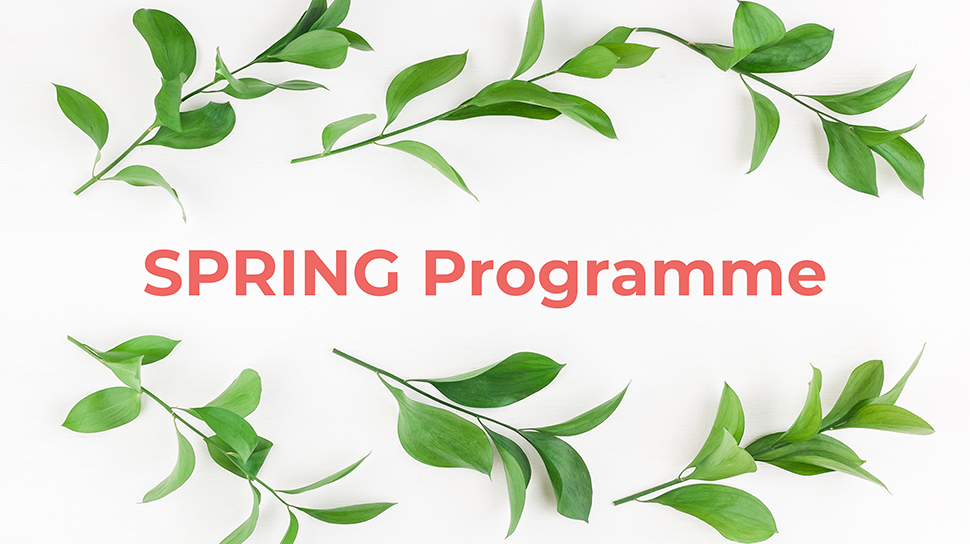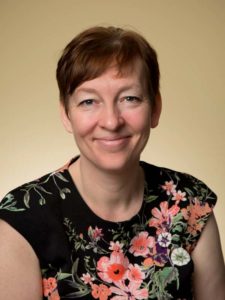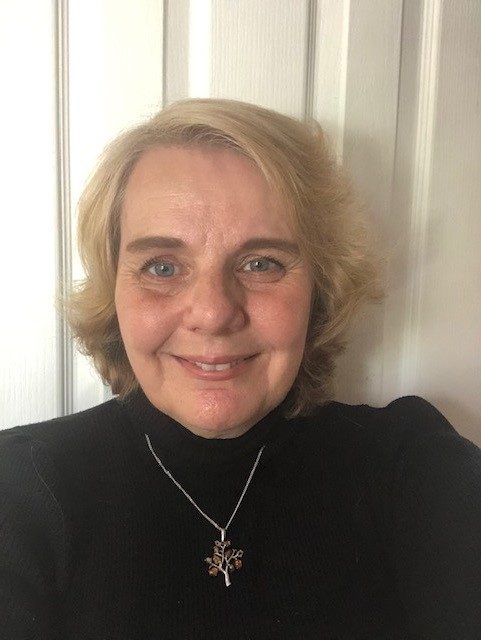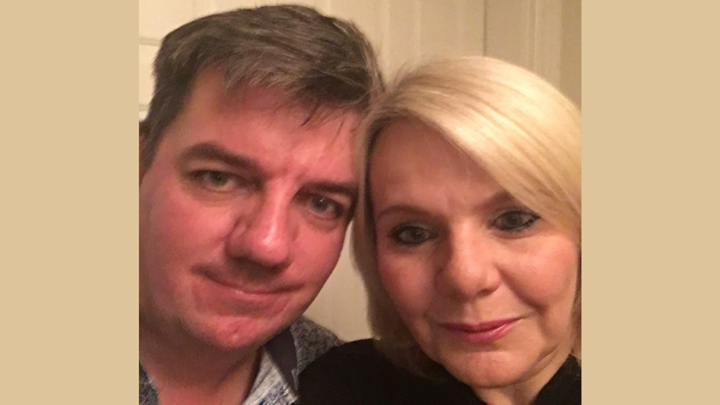Lorraine Davis, 50, received her diagnosis in March 2020, just five days before the country went into national lockdown. Despite a clear mammogram the year before, Lorraine found a lump in her breast. A body scan later revealed the cancer had spread to her bones.
Getting cancer is bad enough but getting it during this pandemic has been horrific
“Getting cancer is bad enough but getting it during this pandemic has been horrific. For a while I felt we were very much on our own, with the four of us in the house. I hadn’t ever considered ever getting ill before. For me, and my family, the mental and emotional impact has been massive.”
Former secondary school teacher Lorraine has been married to Richard for 25 years and they have two daughters.
Lorraine describes her diagnosis as a ‘bomb going off’:
You get this diagnosis and all you wanted to do gets blown up
“You think you’re quite fit and healthy and just going through life, then you get this diagnosis and all your plans, all you wanted to do, gets blown up. It takes away everything. You don’t see the point in doing anything and can get into a spiral.
“Suddenly you get told you’re vulnerable and get these letters from the government and the hospital basically telling you to stay indoors. It was a scary time.
“I feel like life’s been on hold for so long with the pandemic and for someone like me, who hasn’t got as long left, you feel quite frustrated that you’ve not been able to go out and enjoy things, see or do things.”
Lorraine heard of us at her breast cancer support group late last year. She recently completed our 12-week Spring Programme – an individualised support programme for people with life-limiting conditions, and their families. Each week has a different theme and includes practical advice on managing physical symptoms, how to manage mental wellbeing, and empowers patients to set personal goals.
The Spring Programme is like a starter course
“I’d never thought about coming here”, Lorraine continues, “as you always associate a hospice with death and where you go to die. But it wasn’t at all what I imagined.
“The Spring Programme is like a starter course for what the hospice is offering. It covers different aspects of your life each week – your emotional needs and practical needs; I didn’t know we could get financial help, for example.

Someone to talk to
“It’s also really helped to have someone to talk to weekly. It’s about you and the way you feel. If you’re waiting for results or scans, they understand exactly what you’re going through. “Ali, who leads the Programme, is incredibly knowledgeable and she’s also been so reassuring when I’ve been upset or worried. It helps such a lot. You can talk to your family – we’re very close - but they don’t know any more than you do.”
The Spring Programme encourages patient to think about, discuss and set their own goals, which Lorraine admits was difficult at first:
“You don’t tend to set goals for yourself because you think ‘I’m not going to be around that long’ and question how long you’ve got left. You don’t see a future for yourself.
I still have a life to live
“The biggest thing for me is to recognize you’ve got life left. When I first got diagnosed, I went away and sat around for six months waiting for death to come. Then I realized, that’s not the case. I still have a life to live. “I want to do an MA and see the Northern Lights. I also think I might volunteer to become a school governor. Whilst I can’t work as a teacher as I’ve not got the energy anymore, I have things I can do and skills I can offer. I can still be useful and that’s very important to me.”
Lorraine has also been attending a virtual exercise class run by Treetops and has recently helped set up our first Book Group.
Lorraine has also been attending a virtual exercise class run by Treetops and has recently helped set up our first Book Group.
“Everyone has an idea in their head that they’re going to get old, but you don’t know when you will pass. When you’ve been told you’ve got something that will make you pass earlier than you thought, it’s so hard.
